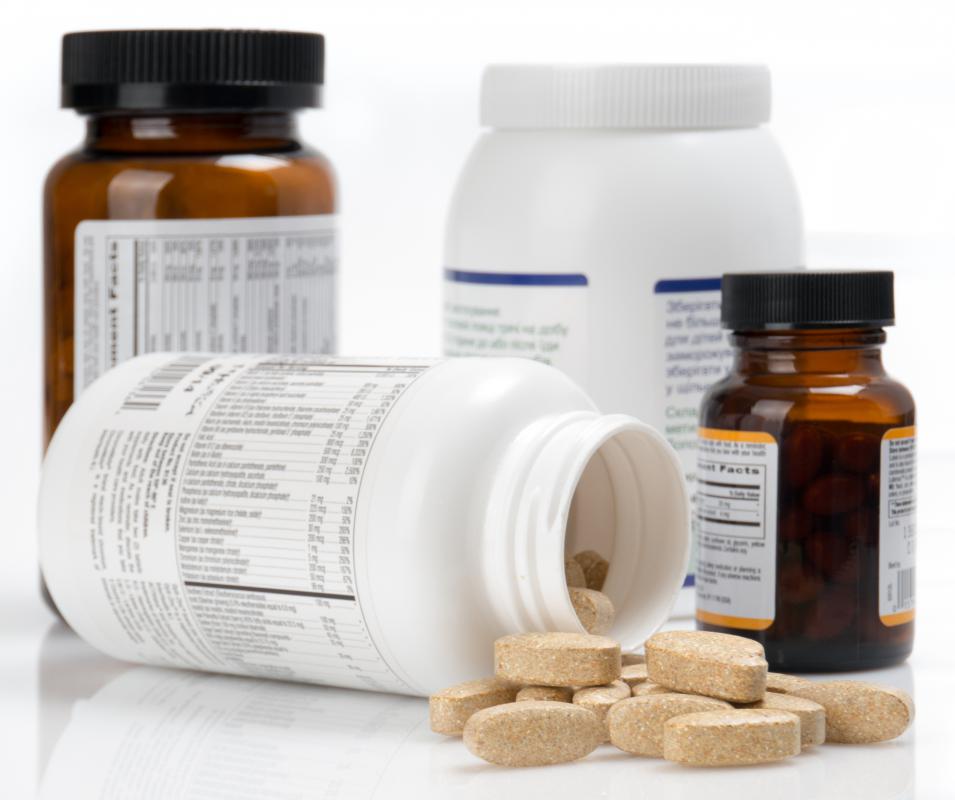At TheHealthBoard, we're committed to delivering accurate, trustworthy information. Our expert-authored content is rigorously fact-checked and sourced from credible authorities. Discover how we uphold the highest standards in providing you with reliable knowledge.
What are Metabolites?
Metabolites are organic compounds that are used in, or created by, the chemical reactions happening in every cell of living organisms. This process, known as metabolism, is responsible for breaking down food and other chemicals into energy and materials needed for health, growth, and reproduction. Metabolism is also responsible for the removal of toxic substances from the body. Metabolites can be the starting materials, intermediate materials, or end products of these chemical reactions.
A variety of metabolites and reactions combine to produce all the effects that allow an organism to sustain life. A primary metabolite is one that is directly involved in development, growth, and reproduction. A secondary metabolite has an effect that is usually more ecological, such as pigments or antibiotics. Anabolic reactions use up energy to build simple molecules into more complex ones. Catabolic reactions break complex molecules down and often end up releasing energy.

The compounds that constitute the starting materials of the metabolic process are usually ingested by the organism as food. These metabolites often include vitamins and essential amino acids. They can then be broken down by the body into simpler molecules, or used to construct more complex molecules. Turning amino acids into complex proteins is an example of this type of metabolic process.
Intermediate metabolites tend to be the most common in the metabolic process. These can be synthesized from other metabolites or broken down into simpler compounds. When they are broken down, there is usually a release of energy. The process of breaking down glucose into chemical energy is perhaps one of the most important of these types of reactions.
The end product metabolites tend to result from the breakdown of other compounds. They are usually excreted from the body without any further changes to their structure. Most of the time, these can not be used to synthesize anything else. Some toxins, and many forms of drugs, must be broken down into metabolite form before they can be removed from the body.
In medical terms, metabolites often refer to the byproducts of ingesting medications. Sometimes the metabolite is the active ingredient in a medication, and the drug must first be metabolized in order to have the desired medicinal effect. Other times a metabolite created by the drug produces a side effect that is secondary to the desired effect of the medication. In both cases, the rate at which the compound degrades has a direct impact on the intensity and duration of the drug effect.
AS FEATURED ON:
AS FEATURED ON:











Discussion Comments
@TreeMan - Although many plants can be harmful to humans and other animals, those same secondary metabolites can be extremely beneficial when used correctly.
The pharmaceutical business is based around plant secondary chemicals. Thousands of medicines rely on plant products, and countries like China are famous for their home remedies.
There are plenty of home remedies made from North American plants, too, but I can't think of any at the moment.
I know in plants secondary metabolites are a common byproduct of metabolism. These are usually chemicals the plant produces that protect it from being eaten by insects and other animals. Think about poison ivy or hemlock (the plant that killed Socrates).
I'm sure primary metabolites exist in plants, as well. I've never heard of humans producing any chemicals that can kill other animals, but there are plenty of other poisonous animals.
Maybe animals can produce secondary metabolites that serve as a defense system against other animals.
@titans62 - I read an article recently that discussed the usefulness of sports drinks. In general, if you are engaged in high activity for over an hour, then your body will have a use for the metabolites. For most things less than an hour, there is really no need to replenish your system.
The article mentions metabolites in medicines. I've often wondered how time-released medicines work. Does anyone know if different metabolites are the answer?
I often hear metabolites mentioned in reference to sports drinks. This article really cleared up what that means.
How fast can metabolites be broken down in the body, though? It seems like if you were using sports drinks, they wouldn't have much of an effect until after you were done with the activity. I guess this would be determined by the metabolism rate.
Post your comments